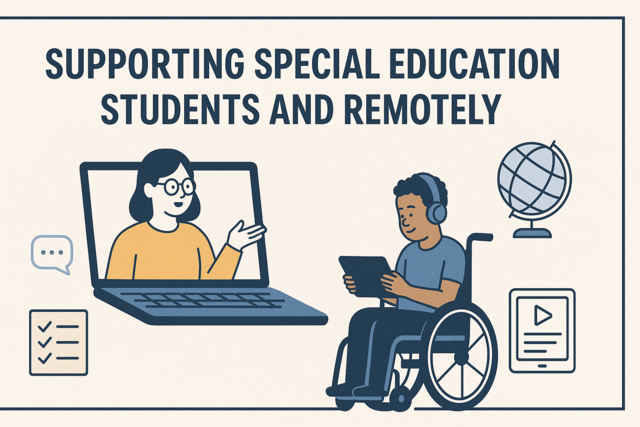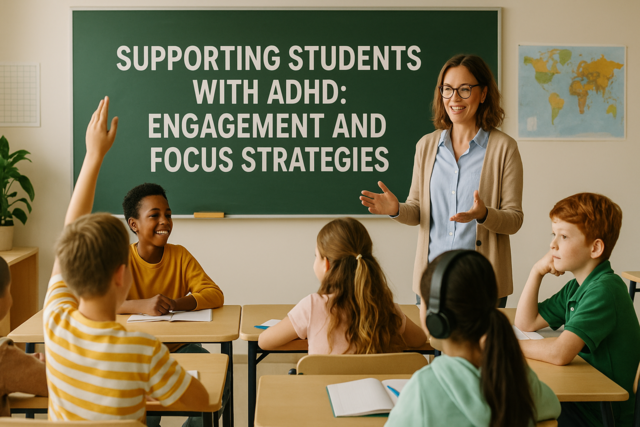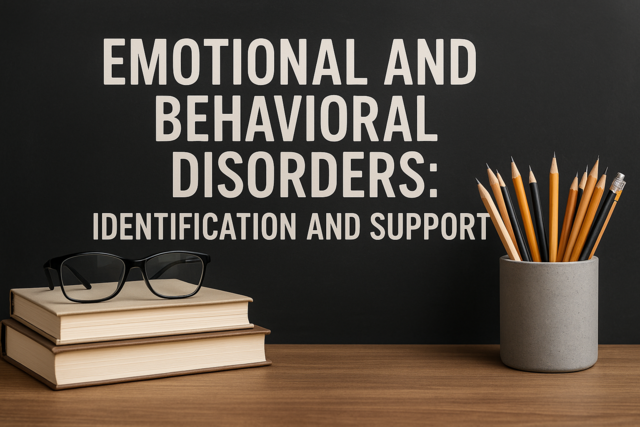Online Class: Teaching Executive Function Skills to Special Needs Students

-
15Lessons
-
22Exams &
Assignments -
3Hours
average time -
0.3CEUs
Course Description
Imagine having the extraordinary ability to unlock the hidden potential within every student you teach. Imagine not just changing a single academic term, but transforming the educational journey for students who face everyday learning challenges. Welcome to "Teaching Executive Function Skills to Special Needs Students" – a unique and transformative course that stands as more than just an academic offering. It's an opportunity, an invitation, to change lives, starting with the way you approach teaching.
From the very first lesson, you'll find yourself stepping into a new realm of educational impact, where the nuances of executive function become your most potent tools. The essence of this course lies in its ability to reveal the often-overlooked roadmaps of the brain—working memory, cognitive flexibility, and inhibitory control—that drive student success. With each concept you master here, you will be equipped to inspire and motivate, to adapt and innovate, crafting bespoke strategies that meet the myriad needs of your students.
Now, let's talk about the uniqueness of this transformative journey. For too long, traditional educational models have tried to fit all students into a singular narrative. This course dares to break the mold by acknowledging that executive function is not a one-size-fits-all concept, especially for students with special needs. You'll learn to decode the complex language of these crucial cognitive skills and speak directly to each student's potential, reshaping the landscape of their educational experience.
What sets this course apart is its bold embrace of diversity in learning. Through heartfelt guidance and real-world examples, we'll see how auditory and visual learners each require different approaches. Your learning will be (figuratively) hands-on, exploring sensory-driven techniques that resonate with the unique rhythm of each child. By positioning digital tools alongside creative cognitive challenges, you imbue your teaching practice with empathy and efficacy.
Interwoven with the course material are stories—real stories from real teachers and families who once fed on uncertainties but now thrive on newfound confidence. You'll share in their journey of discovery, marvel at their transformation, and find in their struggles an echo of your aspirations. From deepening family collaborations to employing mindfulness practices that enhance emotional resilience, you'll be armed with an array of strategies to nurture not just the student, but also the human being.
Practical, yes, but profoundly personal, too. This course ensures that its lessons extend beyond the classroom, offering you insights that shape your teaching ethos and deepen your professional wisdom. Our expertly crafted modules are frequently updated to include cultural sensitivity and evolving technological tools, ensuring you always stay ahead of the curve and deliver the most relevant, compassionate education possible.
We recognize that education is as much about fostering independence as it is about instruction. Thus, each lesson is a step on the ladder of self-empowerment for your students. Your instruction will help them gain mastery over their own learning processes, leading to improved focus, heightened memory, and unshakeable self-control. Not only will you equip them to conquer academic hurdles, but you'll also prepare them for lifelong success.
So, ask yourself: Are you ready to be the catalyst of change in a student's life? Are you ready to move beyond conventional teaching methods to something infinitely richer and more rewarding? If the answer is yes, then this course is more than essential—it is indispensable.
The journey to becoming a more impactful educator lies right here. By enrolling in "Teaching Executive Function Skills to Special Needs Students," you are making a commitment to both your professional growth and the lasting success of your students. Join a community of like-minded educators and pioneers, and together, let's create classrooms where every student has the chance to shine. Ready to embark on this incredible adventure? Your transformative teaching future awaits.
- Business
- Business Ethics Courses
- Harassment Prevention Courses
- Human Resources Certifications
- Management
- Aromatherapy Courses
- Caregiver Courses
- Career Development Courses
- Communications Courses
- Confidence and Self Esteem Courses
- Healing
- Human Anatomy Courses
- Medical Skills
- Health & Medicine
- Nutrition
- Marketing
- Microsoft Office Certification Courses
- Life Coaching Courses
- Self-Improvement
- Small Business Certifications
- Safety
- Writing Improvement
- Business Writing Courses
Course Lessons
Lesson 1. Unlocking Potential: Harnessing Executive Function Skills in Special Needs Education
 Lesson discussions: Reasons for Taking this Course
Lesson discussions: Reasons for Taking this Course Complete: Lesson 1 Activity
Complete: Lesson 1 Activity Assessment: Lesson 1 Review Exam
Assessment: Lesson 1 Review Exam
Lesson 2. Executive Skills: Navigating Complexity and Enhancing Learning
 Assessment: Lesson 2 Review Exam
Assessment: Lesson 2 Review Exam
Lesson 3. Teaching Executive Skills
 Complete: Lesson 3 Activity
Complete: Lesson 3 Activity Assessment: Lesson 3 Review Exam
Assessment: Lesson 3 Review Exam
Lesson 4. The Crucial Role of Working Memory in Special Education
 Assessment: Lesson 4 Review Exam
Assessment: Lesson 4 Review Exam
Lesson 5. Visual, Auditory, and Kinesthetic Learners: Tailoring Education for Success
 Assessment: Lesson 5 Review Exam
Assessment: Lesson 5 Review Exam
Lesson 6. Diverse Learning Profiles and Executive Function Skills
 Complete: Lesson 6 Activity
Complete: Lesson 6 Activity Assessment: Lesson 6 Review Exam
Assessment: Lesson 6 Review Exam
Lesson 7. Emotional Triggers and Executive Function: A Comprehensive Guide
 Assessment: Lesson 7 Review Exam
Assessment: Lesson 7 Review Exam
Lesson 8. Executive Function Skills for Special Needs: Tailored Goal Setting
 Complete: Lesson 8 Activity
Complete: Lesson 8 Activity Assessment: Lesson 8 Review Exam
Assessment: Lesson 8 Review Exam
Lesson 9. The Brain's Executive Assistant: Understanding Executive Function
 Complete: Lesson 9 Activity
Complete: Lesson 9 Activity Assessment: Lesson 9 Review Exam
Assessment: Lesson 9 Review Exam
Lesson 10. Breaking Down Learning Barriers with Tailored Strategies
 Complete: Lesson 10 Activity
Complete: Lesson 10 Activity Assessment: Lesson 10 Review Exam
Assessment: Lesson 10 Review Exam
Lesson 11. Mastering Cognitive Flexibility, Working Memory, and Self-Control
 Complete: Lesson 11 Activity
Complete: Lesson 11 Activity Assessment: Lesson 11 Review Exam
Assessment: Lesson 11 Review Exam
Lesson 12. Building Independence: Executive Functions in Special Ed
 Assessment: Lesson 12 Review Exam
Assessment: Lesson 12 Review Exam
Lesson 13. Building Bridges: Family and Educators Collaborate for Executive Skills
 Assessment: Lesson 13 Review Exam
Assessment: Lesson 13 Review Exam
Lesson 14. Crafting Individualized Strategies for Students' Success
 Assessment: Lesson 14 Review Exam
Assessment: Lesson 14 Review Exam
Lesson 15. Mastering Memory, Focus, and Flexibility: Tools for Special Needs Learners
 Lesson discussions: End of Course Poll; Course Comments
Lesson discussions: End of Course Poll; Course Comments Assessment: Lesson 15 Review Exam
Assessment: Lesson 15 Review Exam
Learning Outcomes
- Demonstrate the ability to apply strategies that enhance working memory, such as chunking information or using mnemonic devices, to retain and manipulate information effectively.
- Recognize and adapt to changes in problem-solving tasks by employing cognitive flexibility techniques to adjust approaches and explore multiple solutions confidently.
- Define working memory and describe its significance in educational settings, particularly for students with special needs.
- Demonstrate strategies to enhance cognitive flexibility in classroom environments using role-playing and problem-solving activities.
- Define executive function as it relates to working memory, cognitive flexibility, and inhibitory control, and describe their significance for special needs students.
- Demonstrate strategies to improve working memory, cognitive flexibility, and inhibitory control for special needs students and evaluate their effectiveness in academic settings.
- Demonstrate the ability to implement specific strategies, such as task chunking and visualization techniques, to enhance working memory and academic performance in diverse learning environments.
- Define working memory and identify its role in executing complex academic and everyday tasks for students with special needs.
- Apply personalized approaches to implement assistive technology in learning environments, aiming to accommodate the unique needs of special needs students for improved academic performance.
- Demonstrate an understanding of diverse learning styles by identifying specific strategies to enhance executive function skills for visual, auditory, and kinesthetic learners.
- Demonstrate the ability to design and implement tailored strategies for teaching executive function skills to special needs students, using assistive technology and strengths-based approaches.
- Identify and categorize various neurodivergent conditions such as ADHD, autism spectrum disorders, and dyslexia in context with their impact on executive function skills.
- Recognize and describe specific emotional triggers that affect executive function in special needs students, using observational data and communication with parents.
- Demonstrate mastery of lesson content at levels of 70% or higher.
Additional Course Information

- Document Your Lifelong Learning Achievements
- Earn an Official Certificate Documenting Course Hours and CEUs
- Verify Your Certificate with a Unique Serial Number Online
- View and Share Your Certificate Online or Download/Print as PDF
- Display Your Certificate on Your Resume and Promote Your Achievements Using Social Media

Related Courses
-
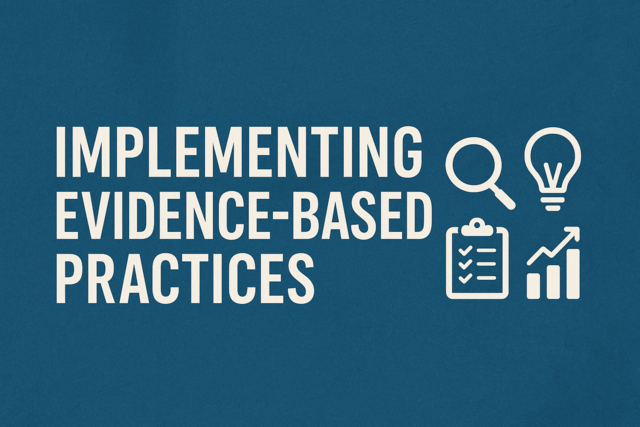 5 hours
0.5 CEUs
Implementing Evidence-Based Practices
+ More Info
5 hours
0.5 CEUs
Implementing Evidence-Based Practices
+ More Info
-
 6 hours
0.6 CEUs
Legacy Building: Creating a Family Culture to Last
+ More Info
6 hours
0.6 CEUs
Legacy Building: Creating a Family Culture to Last
+ More Info
-
 5 hours
0.5 CEUs
The Relationship Reset: Rewriting Your Story Together
+ More Info
5 hours
0.5 CEUs
The Relationship Reset: Rewriting Your Story Together
+ More Info
-
 3 hours
0.3 CEUs
The Empathy Effect: Enhancing Communication with Loved Ones
+ More Info
3 hours
0.3 CEUs
The Empathy Effect: Enhancing Communication with Loved Ones
+ More Info
-
 5 hours
0.5 CEUs
Dress Like a Mogul: Navigating High-End Fashion for Men
+ More Info
5 hours
0.5 CEUs
Dress Like a Mogul: Navigating High-End Fashion for Men
+ More Info
-
 6 hours
0.6 CEUs
Luxe Vision: Designing a Fashionable Future
+ More Info
6 hours
0.6 CEUs
Luxe Vision: Designing a Fashionable Future
+ More Info
-
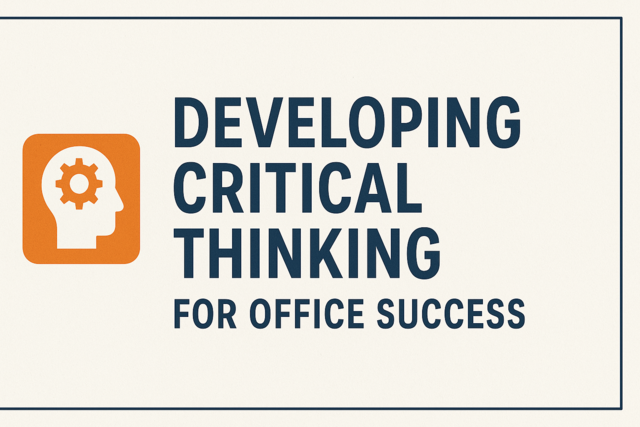 4 hours
0.4 CEUs
Developing Critical Thinking for Office Success
+ More Info
4 hours
0.4 CEUs
Developing Critical Thinking for Office Success
+ More Info
-
 7 hours
0.7 CEUs
Introduction to Cryptocurrency and Blockchain
+ More Info
7 hours
0.7 CEUs
Introduction to Cryptocurrency and Blockchain
+ More Info
-
 6 hours
0.6 CEUs
Creating a Work-Life Balance
+ More Info
6 hours
0.6 CEUs
Creating a Work-Life Balance
+ More Info
-
 5 hours
0.5 CEUs
Conscious Living: Mastering Mindfulness
+ More Info
5 hours
0.5 CEUs
Conscious Living: Mastering Mindfulness
+ More Info
-
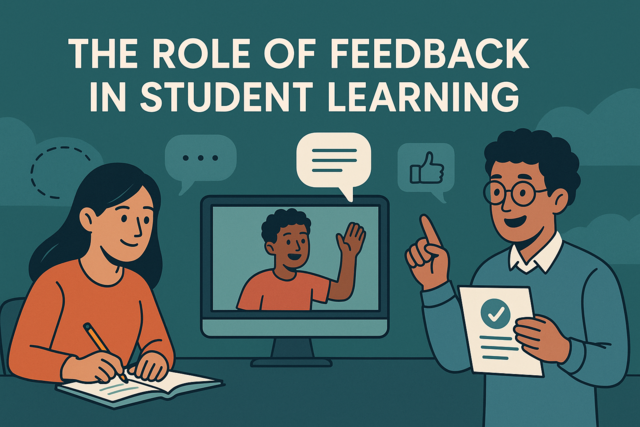 4 hours
0.4 CEUs
The Role of Feedback in Student Learning
+ More Info
4 hours
0.4 CEUs
The Role of Feedback in Student Learning
+ More Info
-
 6 hours
0.6 CEUs
The New Chic: Redefining Urban Elegance
+ More Info
6 hours
0.6 CEUs
The New Chic: Redefining Urban Elegance
+ More Info
-
 5 hours
0.5 CEUs
Mindful Parenting: Cultivating Patience and Presence
+ More Info
5 hours
0.5 CEUs
Mindful Parenting: Cultivating Patience and Presence
+ More Info
-
 7 hours
0.7 CEUs
Healthy Lifestyle and Fitness Habits
+ More Info
7 hours
0.7 CEUs
Healthy Lifestyle and Fitness Habits
+ More Info
-
 5 hours
0.5 CEUs
Family Futures: Creating Lasting Legacies
+ More Info
5 hours
0.5 CEUs
Family Futures: Creating Lasting Legacies
+ More Info
-
 7 hours
0.7 CEUs
Pioneers of Anomalous Sciences
+ More Info
7 hours
0.7 CEUs
Pioneers of Anomalous Sciences
+ More Info
-
 7 hours
0.7 CEUs
Exquisite Ensembles: Curating a Modern Luxury Wardrobe
+ More Info
7 hours
0.7 CEUs
Exquisite Ensembles: Curating a Modern Luxury Wardrobe
+ More Info
-
 7 hours
0.7 CEUs
Designing Interdisciplinary Curricula
+ More Info
7 hours
0.7 CEUs
Designing Interdisciplinary Curricula
+ More Info
-
 4 hours
0.4 CEUs
Paranormal Phenomena: Fact or Fiction
+ More Info
4 hours
0.4 CEUs
Paranormal Phenomena: Fact or Fiction
+ More Info
-
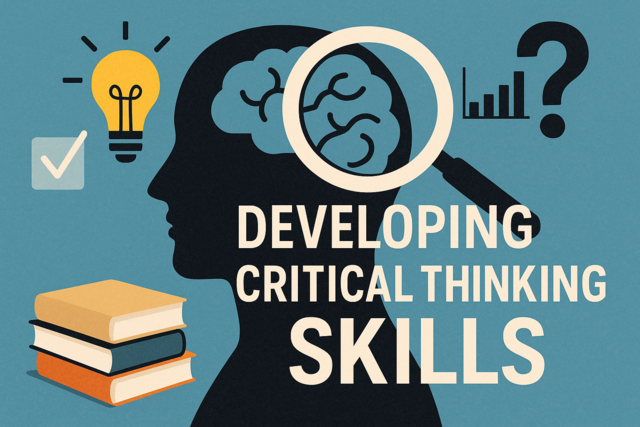 5 hours
0.5 CEUs
Developing Critical Thinking Skills
+ More Info
5 hours
0.5 CEUs
Developing Critical Thinking Skills
+ More Info
-
 6 hours
0.6 CEUs
Holistic Nutrition: Fueling Your Body and Mind
+ More Info
6 hours
0.6 CEUs
Holistic Nutrition: Fueling Your Body and Mind
+ More Info
-
 7 hours
0.7 CEUs
Basics of Entrepreneurship
+ More Info
7 hours
0.7 CEUs
Basics of Entrepreneurship
+ More Info
-
 4 hours
0.4 CEUs
The Love Language Challenge: Transform Your Relationship
+ More Info
4 hours
0.4 CEUs
The Love Language Challenge: Transform Your Relationship
+ More Info
-
 4 hours
0.4 CEUs
Recognizing Hidden Trauma: Identifying Symptoms and Triggers
+ More Info
4 hours
0.4 CEUs
Recognizing Hidden Trauma: Identifying Symptoms and Triggers
+ More Info
-
 5 hours
0.5 CEUs
Advanced Writing and Editing Skills
+ More Info
5 hours
0.5 CEUs
Advanced Writing and Editing Skills
+ More Info
-
 4 hours
0.4 CEUs
The Use of Analytics in Education
+ More Info
4 hours
0.4 CEUs
The Use of Analytics in Education
+ More Info
-
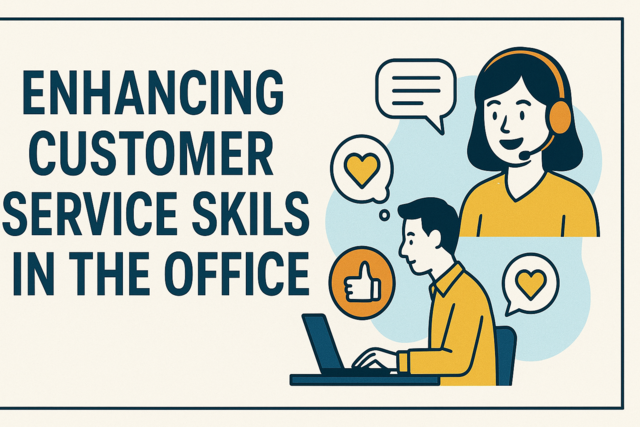 6 hours
0.6 CEUs
Enhancing Customer Service Skills in the Office
+ More Info
6 hours
0.6 CEUs
Enhancing Customer Service Skills in the Office
+ More Info
-
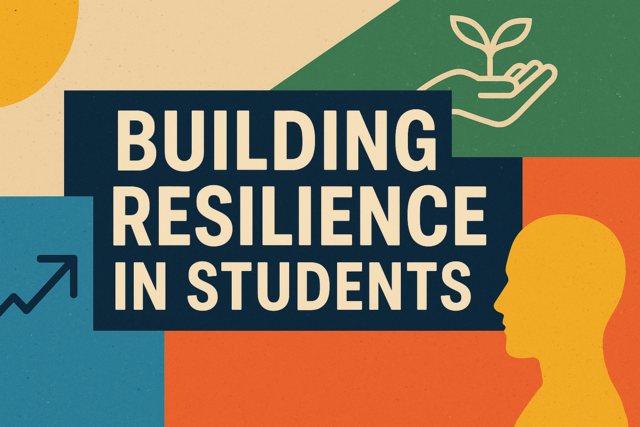 3 hours
0.3 CEUs
Building Resilience in Students
+ More Info
3 hours
0.3 CEUs
Building Resilience in Students
+ More Info
-
 5 hours
0.5 CEUs
Cooking and Nutrition for a Healthy Life
+ More Info
5 hours
0.5 CEUs
Cooking and Nutrition for a Healthy Life
+ More Info
-
 3 hours
0.3 CEUs
Effective Teaching Strategies for Diverse Classrooms
+ More Info
3 hours
0.3 CEUs
Effective Teaching Strategies for Diverse Classrooms
+ More Info
-
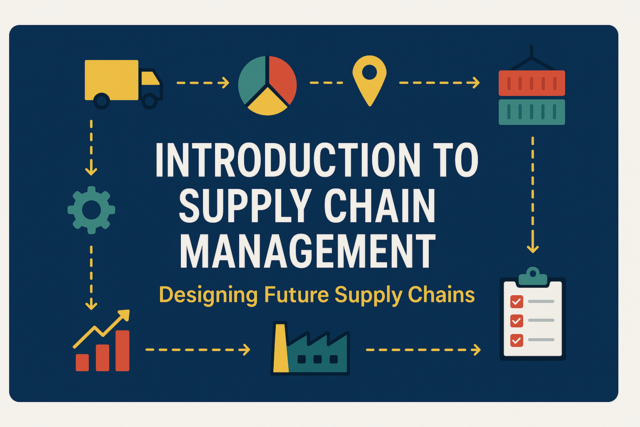 4 hours
0.4 CEUs
Introduction to Supply Chain Management
+ More Info
4 hours
0.4 CEUs
Introduction to Supply Chain Management
+ More Info
-
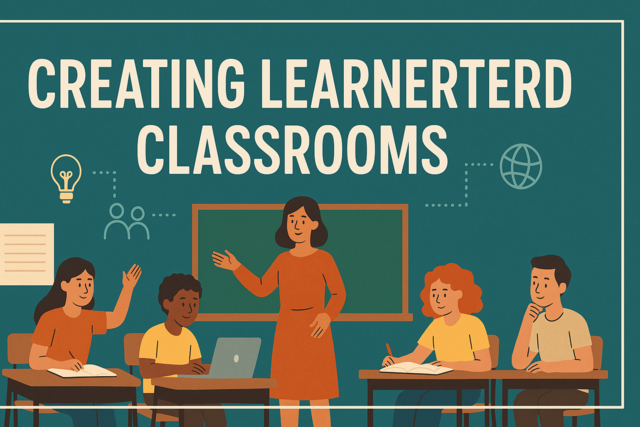 6 hours
0.6 CEUs
Creating Learner-Centered Classrooms
+ More Info
6 hours
0.6 CEUs
Creating Learner-Centered Classrooms
+ More Info
-
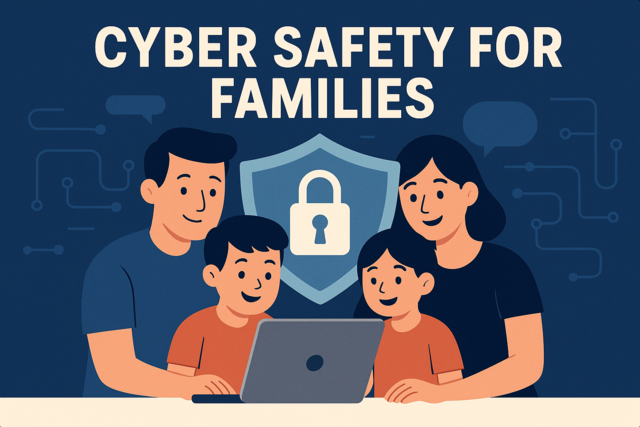 5 hours
0.5 CEUs
Cyber Safety for Families
+ More Info
5 hours
0.5 CEUs
Cyber Safety for Families
+ More Info
-
 4 hours
0.4 CEUs
Strategies for Teaching English Language Learners
+ More Info
4 hours
0.4 CEUs
Strategies for Teaching English Language Learners
+ More Info
-
 7 hours
0.7 CEUs
Building Community and Social Engagement
+ More Info
7 hours
0.7 CEUs
Building Community and Social Engagement
+ More Info
-
 6 hours
0.6 CEUs
The Influence Index: How Environment Shapes Relationships
+ More Info
6 hours
0.6 CEUs
The Influence Index: How Environment Shapes Relationships
+ More Info
-
 5 hours
0.5 CEUs
Self-Discipline and Motivation Strategies
+ More Info
5 hours
0.5 CEUs
Self-Discipline and Motivation Strategies
+ More Info
-
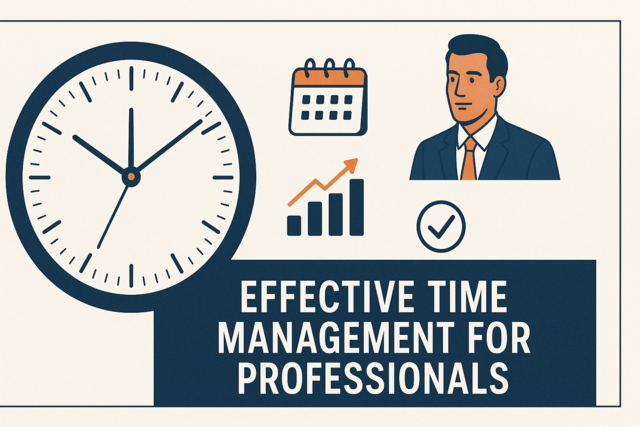 7 hours
0.7 CEUs
Effective Time Management for Professionals
+ More Info
7 hours
0.7 CEUs
Effective Time Management for Professionals
+ More Info
-
 4 hours
0.4 CEUs
Basic Household Maintenance Skills
+ More Info
4 hours
0.4 CEUs
Basic Household Maintenance Skills
+ More Info
-
 6 hours
0.6 CEUs
The Vogue of Now: An Insight into Modern Fashion Trends
+ More Info
6 hours
0.6 CEUs
The Vogue of Now: An Insight into Modern Fashion Trends
+ More Info


